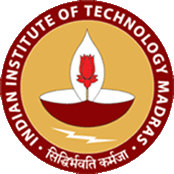Governance
Training program on open source 'Gram Panchayat QGIS', IIT Madras, Hyderabad
Posted on 18 Dec, 2010 11:37 AM Organizer: Indian Institute of Technology Madras (IIT)
Organizer: Indian Institute of Technology Madras (IIT)
Conceptual framework of South Asian water futures exchange - Commodity Vision
Posted on 18 Dec, 2010 12:15 AMIn this article published in Commodity Vision, the author presents the concept of the establishment of a 'futures market in water availability' in the context of the risk of water availability that Indian agriculture has been facing in the recent years.
With South Asian agriculture being dependent on the timely occurrence of the monsoons, any deviation from the scheduled arrival of the monsoon causes problems not only for the farmers, but also produces a threat to the food security of the region. However, the author argues that, there is no market in South Asia where users and investors exposed to water availability risk can effectively hedge against such a risk.
Mine the gap: Connecting water risks and disclosure in the mining sector – A report by the World Resources Institute
Posted on 17 Dec, 2010 10:43 PMThis paper by the World Resources Institute outlines potential water-related risks facing the mining industry and highlights important gaps in water-related disclosure. The purpose is to provide information, questions, and tools to help the financial community better evaluate water-related risks facing mining companies.
Water management across space and time in India – A working paper by the University of Bonn
Posted on 17 Dec, 2010 10:09 PMThis working paper by the University of Bonn attempts to give a spatial and temporal overview of water management in India. It traces how people and the successive regimes made choices across space and time from a wide range of water control and distribution technologies. The paper divides the water management in India into four periods –
- the traditional system of water management before colonial times;
- response from the colonial rulers to manage the complex socio-ecological system;
- large scale surface water development after independence; and
- finally, the small-scale community and market-led revolution.
The wealth of waste: The economics of wastewater use in agriculture - A report by FAO
Posted on 17 Dec, 2010 07:36 PM This report by the Food and Agriculture Organisation (FAO) deals with the economics of wastewater use in agriculture. It presents an economic framework for the assessment of the use of reclaimed water in agriculture, as part of a comprehensive planning process in water resource allocation strategies to provide for a more economically efficient and sustainable water utilization.
This report by the Food and Agriculture Organisation (FAO) deals with the economics of wastewater use in agriculture. It presents an economic framework for the assessment of the use of reclaimed water in agriculture, as part of a comprehensive planning process in water resource allocation strategies to provide for a more economically efficient and sustainable water utilization.
Embankments related compensation to drain Indian exchequer : Need to review the flood control policy of the Government
Posted on 16 Dec, 2010 03:14 PMGovernment of Nepal has asked the Government of India to compensate its citizens badly affected by embankments and other flood control measures taken on river Gandak. Will this not lead to a flood of demands for compensation by the victims of similar problems in other river basins like the Bagmati, the Kamala and the Kosi?
Immediate moratorium sought on clearances for large dams in northeast India - Press release by Krishak Mukti Sangram Samiti (Assam)
Posted on 14 Dec, 2010 10:56 PM23rd November 2010, New Delhi
- Seeking a moratorium on clearances for large dams in Northeast India
- Withdrawal of clearances granted to 2000 MW Lower Subansiri, 1750 MW Demwe Lower & 1500 MW Tipaimukh dams
- Future steps on hydropower projects and dams only after full, prior and informed consent of people in the region
- Protect the Brahmaputra river basin as a cultural and ecological endowment
Unregulated sand mining threatens Indian rivers - Ground report article
Posted on 11 Dec, 2010 03:47 PMArticle and Image Courtesy: Ground Report
Many in India, perhaps, are not able to foresee how lack of governance, virtually, in every sphere is going to hit them in not too distant future. Take for instance mining. Illegal mining of mineral resources, with generous help of political and bureaucratic big wigs, is so rampant that not only are the country’s precious natural resources being purloined in a big way, its forests are being clean-felled, land degraded and its rivers threatened with extinction.
Approach paper on water quality issues in islands – Andaman & Nicobar and Lakshadweep by Central Ground Water Board
Posted on 10 Dec, 2010 09:18 PMThis approach paper by the CGWB on water quality issues in islands (Andaman & Nicobar and Lakshadweep) includes a detailed and comprehensive account of the basic information pertaining to each group of islands separately such as administrative set-up, population, climate and also the technical aspects like geomorphology, geological and hydrogeological conditions.
People's initiative in water - Olavanna village in Kerala (India) - Reclaiming public lives - Transnational Institute
Posted on 10 Dec, 2010 06:12 PMThis chapter from the book 'Reclaiming Public Lives' by Transnational Institute describes the case of a small village in the state of Kerala, India, which faced an acute drinking water crisis and describes how people’s initiative, together with the involvement of the local panchayat and the support of the state government, could successfully address the issue of scarce drinking water in the village.





